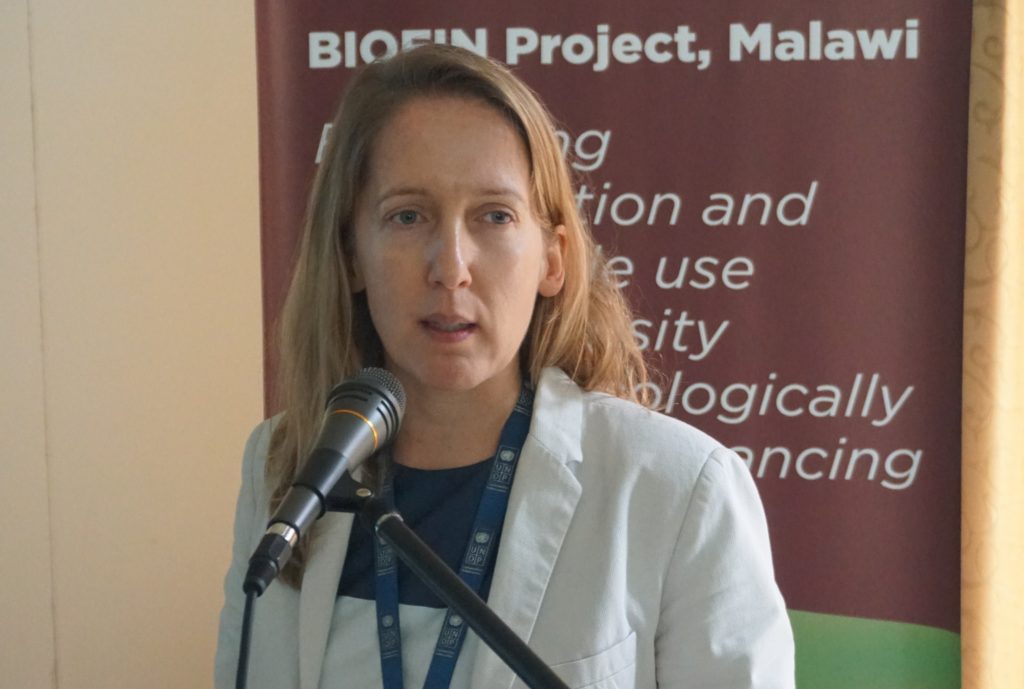Biofinance to boost ecosystems
Chief Director in the Ministry of Natural Resources, Oliver Kumbambe has launched the first Malawian chapter of the Biodiversity Finance (Biofin) initiative aimed at enhancing conservation, sustainable use of fauna and flora.
He said Biofin is one outcome of the 10th Conference of the Parties to Convention on Biological Diversity, which agreed there was a need for parties to develop a comprehensive resource mobilisation strategy for biodiversity conservation.

“Biofin will provide support for countries to enhance financial management for ecosystems and it is being led by Environmental Affairs Department in the Ministry of Natural Resources, Ministry of Finance and managed through the United Nations Development Program [UNDP],” he said.
UNDP deputy resident representative, Claire Medina in her remarks, warned that Malawi is losing its biodiversity through deforestation, raging fires that wipe ecosystems, soil loss and the threats of invasive alien species.
She said: “It is time for various experts gathered here, to work together to help in addressing issues of biodiversity loss. The contribution it makes to national social economic development is enormous.”
Kumbambe told the audience before unveiling the new initiative that Malawi is endowed with diverse fauna and flora, which play a very important role in human wellbeing.
“Over 70 percent of the Malawian population depends solely on biodiversity for their livelihoods. However, despite the enormous benefits that are derived from biodiversity less than 1 percent of the entire national budget is allocated for conservation and their sustainable utilisation,” he said.
In 2007, the Ministry of Finance and Economic Planning through the Malawi Poverty and Environment Initiative with support from the Global Poverty and Environment Initiative of the UNDP and the United Nations Environmental Programme commissioned a study to determine the economic value of biodiversity sustainable use.
The study findings were published in a January 2011 report titled the Economic valuation of sustainable natural resource use in Malawi.
The results revealed that Malawi pays a high price for unsustainable natural resource use. This cost is equivalent to giving up 5.3 percent of gross domestic product each year.
Malawi would be richer by K 26.6 billion ($191 million) each year in 2007 prices if soil, forest, fishery and wildlife resources were used sustainably. This is more than the total funding allocated to the education sector and to the heath sector in the 2009 financial budget.
Centre for Environmental Policy and Advocacy (Cepa) executive director, William Chadza, observed that Biofin will contribute towards addressing the perennial challenge of inadequate funding for biodiversity management in Malawi. “This challenge was also cited in National Biodiversity Strategy Action Plan II. As such while its aim is to develop a resource mobilisation strategy for biodiversity conservation, one hopes it will go beyond this by ensuring that the resources mobilised are accessible to those involved in biodiversity conservation in Malawi,” he said.





